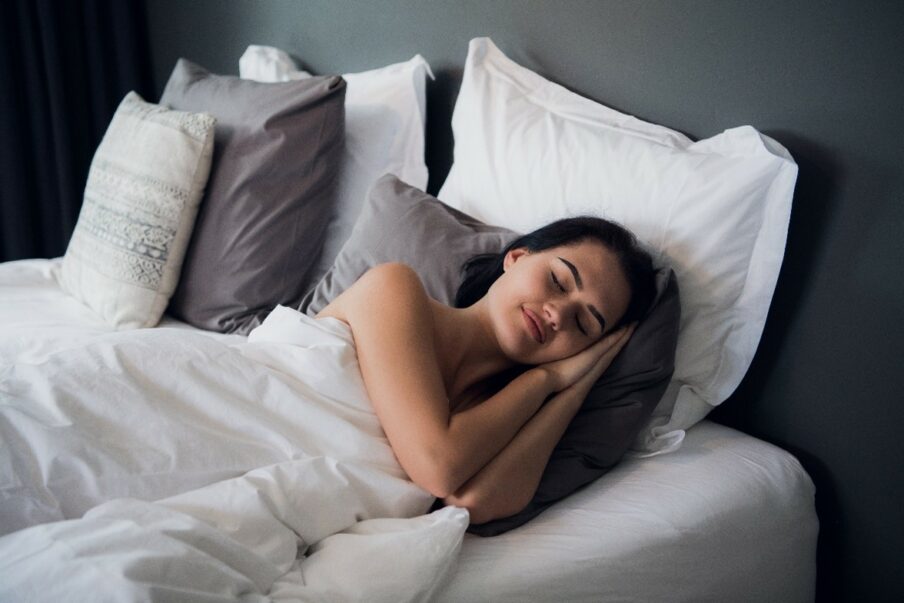Sleep apnea is a common sleep disorder that affects millions of people worldwide. It is characterized by interrupted breathing during sleep, leading to poor quality sleep and a range of potential health complications. While medical intervention is often necessary for severe cases of sleep apnea, there are several natural remedies that can be beneficial in managing the condition. In this article, we will explore seven types of natural remedies for sleep apnea and how you can implement them into your routine to improve your sleep quality and overall well-being.

Understanding Sleep Apnea
Sleep apnea is a complex disorder that occurs when the muscles in the throat fail to keep the airway open during sleep. This leads to brief periods where breathing stops, resulting in interrupted sleep. There are two main types of sleep apnea: obstructive sleep apnea (OSA) and central sleep apnea (CSA). OSA is the more common form and occurs when the muscles in the throat relax, while CSA is caused by a failure of the brain to send the proper signals to control breathing. Both types may also coexist in patients.
The Science Behind Sleep Apnea
During sleep, the muscles in the throat and tongue naturally relax. However, in individuals with OSA sleep apnea, this relaxation causes the airway to narrow or become completely blocked. When the airway is blocked, the brain detects a decrease in oxygen levels and briefly wakes the individual up to resume normal breathing. These interruptions can occur multiple times throughout the night, leaving the person feeling exhausted and fatigued during the day.
Understanding the science behind sleep apnea involves delving into the intricate mechanisms of the respiratory system. The muscles in the throat, known as the pharyngeal muscles, play a crucial role in maintaining an open airway. However, in individuals with sleep apnea, these muscles may not function properly, leading to the collapse of the airway during sleep. This collapse can occur due to various factors, including excess weight, anatomical abnormalities, or underlying medical conditions.
Furthermore, the brain’s role in sleep apnea cannot be overlooked. In individuals with CSA, central sleep apnea, the brain fails to send the appropriate signals to control breathing. This disruption in the brain’s respiratory control center can result from neurological disorders, such as Parkinson’s disease or stroke. Understanding the intricate interplay between the respiratory system and the brain is crucial in comprehending the complexities of sleep apnea.
Symptoms and Risks of Sleep Apnea
It is important to recognize the symptoms of sleep apnea to seek appropriate treatment. Some common symptoms include loud snoring, gasping or choking during sleep, morning headaches, daytime sleepiness, and difficulty concentrating. Untreated sleep apnea can increase the risk of high blood pressure, heart disease, stroke, diabetes, and other serious health conditions.
Moreover, the impact of sleep apnea extends beyond physical health. The persistent fatigue and daytime sleepiness experienced by individuals with sleep apnea can significantly affect their quality of life. It can impair cognitive function, leading to difficulties in memory, concentration, and decision-making. Additionally, sleep apnea can strain personal relationships, as the loud snoring and frequent awakenings can disrupt the sleep of bed partners.
Recognizing the risks associated with untreated sleep apnea emphasizes the importance of seeking proper diagnosis and treatment. By addressing the underlying causes of sleep apnea and implementing appropriate interventions, individuals can improve their overall health and well-being.
The Importance of Natural Remedies
While medical treatments such as continuous positive airway pressure (CPAP) machines are effective in managing sleep apnea, many individuals prefer to explore natural remedies as an alternative or complement to traditional treatments. Natural remedies can be helpful in reducing the severity and frequency of sleep apnea episodes and promoting better sleep quality.
Benefits of Natural Remedies
One of the main advantages of natural remedies is that they often have fewer side effects compared to medication or invasive treatments. Additionally, natural remedies can be incorporated into your daily routine easily and may provide long-term benefits for overall health and well-being.
Precautions with Natural Remedies
It is important to consult with a healthcare professional before starting any new natural remedy for sleep apnea, especially if you have underlying health conditions or are currently taking medications. This will ensure that the remedies are safe for you and won’t interact negatively with your existing treatment plan.
Exploring the 7 Natural Remedies for Sleep Apnea
Now let’s delve into the natural remedies that can help alleviate sleep apnea symptoms and promote better sleep. Remember, it is crucial to be consistent and patient when implementing these remedies to experience their full benefits.
1. Herbal Remedies for Sleep Apnea
Herbal remedies such as valerian root, chamomile, and passionflower have calming properties that can help relax the muscles and promote better sleep. These herbs can be taken as supplements, brewed into tea, or used in aromatherapy.
2. Lifestyle Changes to Alleviate Sleep Apnea
Making certain lifestyle changes can significantly improve sleep apnea symptoms. Some lifestyle modifications include maintaining a healthy body weight, avoiding alcohol and sedatives, quitting smoking, and practicing good sleep hygiene.
3. Breathing Exercises for Sleep Apnea
Specific breathing exercises, such as diaphragmatic breathing and pursed-lip breathing, can strengthen the respiratory muscles and improve breathing patterns during sleep. These exercises can be learned from a respiratory therapist or through online resources.
4. Dietary Adjustments for Sleep Apnea
What you eat can impact your sleep quality. Certain foods, such as spicy or fatty meals, can worsen sleep apnea symptoms. On the other hand, incorporating a balanced diet rich in fruits, vegetables, whole grains, and lean proteins can promote better sleep and overall health.
5. Essential Oils for Sleep Apnea
Essential oils, such as lavender and peppermint, have relaxing and anti-inflammatory properties that can help open up the airways and improve breathing during sleep. These oils can be diffused, applied topically, or added to a warm bath before bedtime.
6. Acupuncture and Sleep Apnea
Acupuncture is an ancient Chinese therapy that can be beneficial in managing sleep apnea symptoms. By inserting thin needles into specific points on the body, acupuncture can help stimulate the release of endorphins, promote relaxation, and improve sleep quality. Do ensure that this treatment is done by a certified or licensed acupuncturist or TCM physician.
7. Yoga and Sleep Apnea
Yoga combines deep breathing, stretching, and relaxation techniques that can be beneficial in managing sleep apnea. Regular practice of yoga can strengthen the respiratory muscles and promote better sleep by reducing muscle tension and stress.
How to Implement These Remedies into Your Routine
Now that we have explored the natural remedies for sleep apnea, it’s time to incorporate them into your daily routine. Here are some practical steps you can take:
Creating a Sleep-Friendly Environment
Create a comfortable and relaxing sleep environment by keeping your bedroom dark, quiet, and at a comfortable temperature. Remove any distractions, such as electronic devices, that can interfere with your sleep. You may apply essential oils and practice breathing exercises before going to sleep.
Developing a Consistent Sleep Schedule
Establish a regular sleep schedule by going to bed and waking up at the same time every day, even on weekends. This will help regulate your body’s internal clock and improve the quality of your sleep. At the same time, practicing yoga in the day and taking the right group of foods may help you increase the urge to sleep at night.
By incorporating these natural remedies into your routine, you can take control of your sleep apnea and experience better sleep quality. Remember to consult with a healthcare professional to ensure that these remedies are suitable for you. By addressing sleep apnea naturally, you can improve your overall well-being and enjoy the benefits of a restful night’s sleep.












